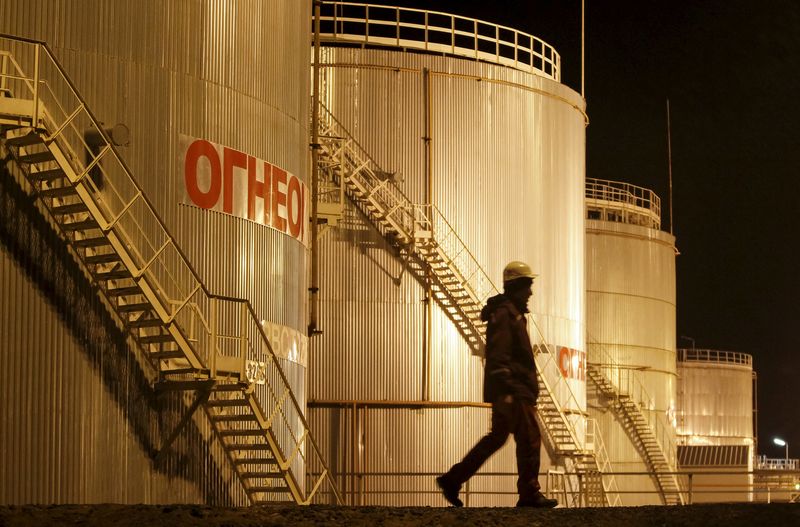Investing.com — Oil prices ended the week in the red despite rising on Friday as Fed Chairman Jerome Powell’s signal that rate cuts were coming boosted sentiment on risky assets.
At 2:30 PM ET (18:30 GMT), it rose 2.3% to $79.02 per barrel, while rising 2.5% to settle at $74.83 per barrel.
Powell considers interest rate cuts
“The time has come for policy adjustment,” Powell said Friday. The Fed chairman also hinted that bigger rate cuts could be possible if the economic slowdown were faster than expected.
The confirmation that interest rate cuts are in the offing partly allayed concerns that a weaker US economy would dampen oil demand.
Yet demand prospects remain uncertain as China, one of the world’s largest oil consumers, continues to experience slowing economic growth.
Fear of supply surpluses
While U.S. demand appeared strong in the near term, as government data showed an outsized inventory drop earlier this week, traders feared that deteriorating economic conditions could hamper demand in the coming months.
Fears of an oil oversupply also played a role, after US oil production rose to a record high of more than 13 million barrels earlier in August.
The number of oil rigs, a gauge of future production, remained stable at 483 from the previous week, Baker Hughes reported Friday.
The Organization of the Petroleum Exporting Countries and allies, a group known as OPEC+, plans to increase production later this year.
The cartel had recently upgraded its outlook for global oil demand, citing concerns about weak demand from oil importer China.
The ceasefire between Israel and Hamas in pictures
US officials said a ceasefire between Israel and Hamas was near, although media reports said Israel and Hamas were less confident of an agreement.
Israel had reportedly agreed to a US-proposed bridge deal earlier this week
But Hamas had criticized the deal as favoring Israel.
The conflict between Israel and Hamas has caused traders to place a certain risk premium on oil prices due to the prospect of supply disruptions from conflict spillover. But conflicts have so far had a limited impact on actual crude oil supplies.
(Peter Nurse, Ambar Warrick contributed to this article.)


